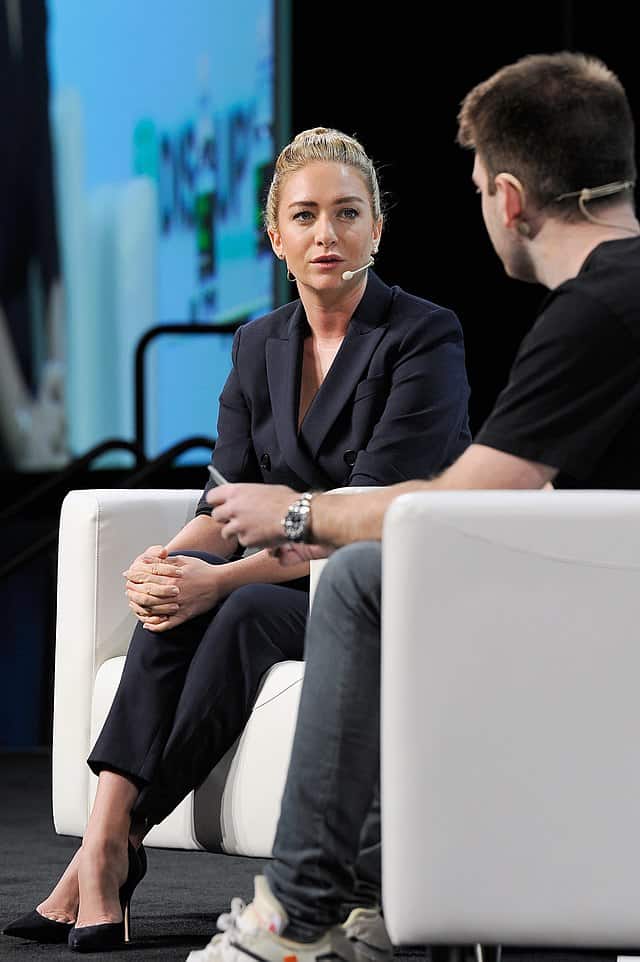Whitney Wolfe Herd and the Death of Traditional Dating Apps

When I wrote an article recently on Elizabeth Holmes, explaining how she was different from other founders, one name kept coming up in the comments. It was in response to a point I made in the Holmes article:
When the next female startup founder comes along, people will inevitably draw comparisons to Holmes. Venture capitalists and investors may even think twice before funding future female founders. That’s sexist, awful, and shouldn’t be the case, but we would be naive to think that Holmes’ guilty verdict won’t have an impact on women.
Multiple commenters argued that Whitney Wolfe Herd was doing well. And it’s true. She has succeeded where Holmes failed. A young female founder who put an in-demand product (Bumble) on the market that actually works.
She succeeded, however, long before Holmes was found guilty. My point in the Holmes article was focused on futurefemale founders (in the wake of Holmes’ guilty verdict), and the unfair comparisons to Holmes that I hope do not happen, but suspect will.
As I was researching Whitney Wolfe Herd though, another problem became apparent. It is not necessarily specific to Wolfe Herd, but to her industry at large.
Traditional dating apps are declining in popularity.
The Death of Traditional Dating Apps?
First, I should preface with the fact I have never used any dating apps. I was one of the few millennials that got hitched before they became en vogue. As you will see below, I substantiate my points based on data, surveys, and other reporting, not personal experience.
SurveyMonkey data revealed the following:
Roughly 56% of adults view dating apps and services as either somewhat or very negative; their unfavorability persists across age groups and gender. For example, 59% of women and 55% of men have either a somewhat or very negative opinion on dating sites and apps.
This general negative sentiment is fueled by distrust, both in what potential dates represent about themselves (e.g., lying about their height) and the use of (sensitive) personal information online.
Other people are simply fed up with dating apps. Some have turned to Twitter and (gasp) TikTok. In this article, the author describes how one woman set up a Substack complete with a Google Form for potential suitors to complete.
And then there are the new dating apps, which don’t look like the old guard at all (e.g., Tinder, Bumble, and Match.com). These apps, such as Snack, are all the rage with Gen Z. Snack is a video dating app that bills itself as “TikTok meets Tinder.”
The Decline of Bumble
Wolfe Herd is no longer a billionaire on paper. Forbes had estimated her net worth at approximately $940 million when Bumble stock was $35.03 per share, but now it is much lower (~$28 per share as of this writing).
While the news has been good recently at Bumble, it still does not have positive net income. Wolfe Herd founded the company in 2014 after previously working as the Vice President of Marketing for Tinder.
She became the world’s youngest female self-made billionaire when she took Bumble public in February 2021 at age 31.
Bumble has had steady growth since going public. The pandemic helped. But its recently seen declines in user growth.
It also has more short interest against it than its peers. Basically, investors think Bumble’s stock price will not only fall, but perform worse than its competitors.
The Future For Whitney Wolfe Herd
I love her story. She’s a fighter, innovator, and strong leader. She built a unique dating platform around female empowerment (women choose who to talk to when contacted by potential suitors).
Based on current trends, however, I don’t think traditional dating apps are here to stay. As with Facebook’s decline, users want video content and experiences. They want a more authentic – and real – feel for a person before they decide whether to meet.
Which is why short form video, in particular, is so popular right now.
Dating profiles are often insufficient. People lie, embellish, and exaggerate. Based on some of the data and sources cited above, dating app users want stronger connections before going on that first date.
Bumble and other existing dating apps designed around user profiles will likely need to adapt. To retain and attract more users, they should listen to those with dating app fatigue and study the fastest growing social media app on the planet, TikTok. TikTok is a gold mine for creators and companies because of its video driven and interests-based algorithm.
So while we should celebrate the story of Whitney Wolfe Heard, we should remember that judging a business is about far more than its founder. Financials, industry trends, and consumer sentiment should receive greater weight than the perceived power of any single CEO.
Nobody should try to fight the market or an industry trend. Adapt, adjust, and change course as needed. Whitney Wolfe Herd and Bumble should do the same.



0 Comments